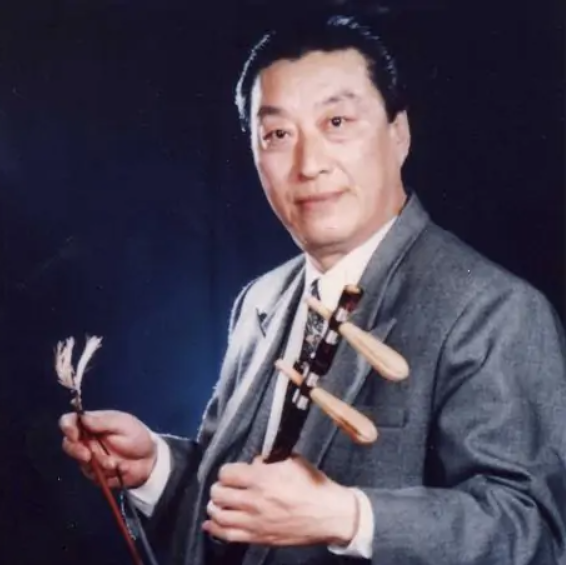Wang Hewen
Organized by 象牙山首富 on 2022-03-09

Wang Hewen is the most outstanding successor of Mr. Yang Baozhong, a famous Jinghu performer and educator in China.
In March 1957, 18-year-old Wang Hewen became the youngest Jinghu, Jingerhu and singing teacher at the Chinese Opera School (now the Chinese Academy of Opera), recommended by Mr. Jin Lu, a master of Jinghu. Appreciation and respect.
The famous Jinghu master, Mr. Yang Baozhong, accepted him as a disciple, and devoted himself to teaching and caring for him. He has won the great progress of his teacher's true piano skills, and his reputation has been greatly enhanced. He has never left the stage and the front line of teaching in the 60 years since he started teaching in art. He combines theory with practice, strives for perfection, combines various methods, and prepares a family. He is known as the "Jinghu Sage" after Yang Baozhong.
Similar artist
Zhang Xiuyan, a Jinghu performer of the Tianjin Youth Peking Opera Troupe, often performs in the repertoires "The Great Quest II", "Mu Guiying in Command", "Nine Heroes of Qingcheng", "Golden Water Bridge", "Yao Qi", "Jade Hall Spring", " The Legend of Taizhen", "Jin Yunu", "Xin An Yi" and so on.
read >>
Song Tingting is an associate professor at the Chinese Academy of Traditional Chinese Opera and a master's student in Jinghu.
read >>
Li Muliang, courtesy name Meng'e, is a Peking Opera pianist. Joined the Communist Party of China in 1961. An old student who learned Peking Opera at a young age. After 1937, he studied with a teacher. After 1940, he played the piano for Ma Lianliang for a long time.
read >>
Yang Baozhong (1899-1967) [1], courtesy name Xinchen. Originally from Hefei, Anhui Province, he is a veteran actor of the Chinese Peking Opera Yu School, and later specialised in playing the piano.
read >>
Zhang Yue, young erhu performer, master of erhu from China Conservatory of Music, member of China Musicians Association, member of China Nationalities Orchestra Society, examiner of social art level of Chinese Nationalities Orchestra Society, and introduced talents from Hainan University.
read >>
Involving musical instruments
Also known as Huqin. It is a traditional Chinese stringed instrument. At the end of the 18th century, with the formation of traditional Chinese opera Peking Opera, it was restructured on the basis of the stringed instrument Huqin. It has a history of more than 200 years and is the main accompaniment instrument for traditional Chinese opera Peking Opera.
Involved portfolio
尼禄 - 191 views
花昼 - 187 views
雨童 - 331 views
岚玖 - 186 views
Involved news
Organized by 辞惘 on 2022-10-19
Recently, there are many folk troupes in the West Coast New Area busy performing for the public welfare, and the Happy Town Art Center Troupe is one of them. The average age of the troupe is about 70 years old. Maoqiang Opera is the main performance, and Chen Jinguang, the head of the troupe, plays Jinghu.
read >>
Organized by 日记里的汤姆 on 2022-06-22
On the morning of June 19, a series of mass cultural activities of "Baoqing Qun Yihui" entered Ailianchi Community, Ailian Street, Shuangqing District, and delivered a sumptuous cultural feast to the local people.
read >>
Organized by 象牙山首富 on 2022-05-06
Jinghu's vibrato, ornamental notes, and reserved fingers are also important Jinghu techniques for beginners, and even the basic Dafa. The reserved fingering is the basis of other fingerings. The decorative tone, also known as the accommodating tone, is a common fingering for stringed instruments.
read >>
Organized by 象牙山首富 on 2022-04-26
Jinghu has been making progress spontaneously and continuously in terms of sound quality comparison. Some huqin sound quality is very good, while some huqin sound quality is very poor. To study this problem, we should start from the theory of Jinghu's main material, structure size and pronunciation.
read >>
Organized by 袁城 on 2022-04-25
Jinghu performance plays a role in setting off the plot, cooperating with the performance of the characters in the play, and expressing the thoughts and feelings of the characters in the play. It is also a re-creation on the basis of the original work. Obviously, studying the stylistic evolution and development of different historical periods is necessary for us to better grasp and develop Jinghu playing skills.
read >>
 渝公网安备 50010702504639号
渝公网安备 50010702504639号